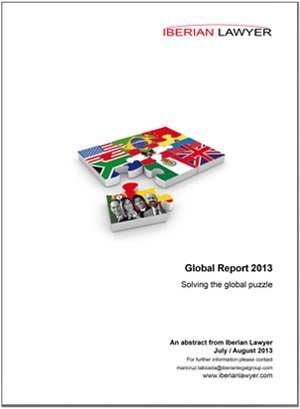Energy market undergoes drastic changes – ABBC
Over this last year, Portugal has been facing the most significant legal and regulatory changes in terms of the energy market since the creation of MIBEL (Iberian Electricity Market). Along with the transposition of the EU Directives including in the Third Energy Liberalisation Package, the legal and regulatory changes that took place were mostly boosted by the commitments of the Portuguese State pursuant to the Memorandum of Understanding and bailout with the Troika.
From a legal standpoint, one must highlight the fact that Portugal now has a common framework for the conventional generation (ordinary regime) and renewable generation lato sensu (special regime), with new rules and what appears to be a more simplified licensing procedure. Former State-owned and Municipal-owned activities, such as transportation and distribution, which have been explored by controlled operators, were also impacted and new and clearer rules have been put in place.
Finally, and in addition to these changes, the regulatory powers of ERSE (the Energy Regulator) have been significantly increased and clarified, granting ERSE clearer and more effective powers in terms of its preventive and corrective intervention. Also, the powers and intervention of the Government in terms of the short- term definition of the energy policy are reinforced. Previously there was a statute-based market operating under a less politically intervened framework – now there is a more administrative approach, designed to be more active in terms of short-term policies.
From a legal standpoint one can be tempted to say that this is good news for the market. However, it is always wise not to rush into conclusions and due diligence that goes beyond scratching the surface leads to concerning conclusions. In fact, the new framework expresses a new political and economic approach to the energy sector, which is very much in line with the immediate needs of a financially distressed and intervened country.
Along with the new framework, the Portuguese Government also undertook a significant economic review of the so-called ‘excessive rents’ of the energy sector. The accuracy of this expression is not without criticism and could be subject to an extensive economic and legal debate around the term ‘rents’. Basically, the energy sector, in particular the electricity sector, is not cheap, and changing from a traditional generation model, which kept the country fully dependent of external sources of energy such as coal and gas, and associated market risk (both in terms of price and availability) to a new model that looks for a more balanced energy mix based on endogenous sources does not come cheap either.
Unlike what happened in Spain, where the unilateral revision and downgrade of tariffs promoted by the Government led to significant litigation, the Portuguese Government has managed to renegotiate with utility companies (both conventional and renewables) the amounts of the compensations paid pursuant to the availability agreements that replaced the former off-take agreements when Portugal opened the energy generation activity to renewables, and the overall cost of the feed-in tariffs.
In this last case, the negotiation process led to a solution more complex than the simple decrease of the amount of the state benefits – the feed-in tariffs stayed the same but the producers are under the obligation of paying back to the national electric sector compensations of €5k/MW* of installed capacity or €5.8k/MW** of installed capacity, per year, starting in 2013 until 2020, and in exchange the Government clarified the statutory risk for five* or seven** years following the term of the guaranteed feed-in tariff periods (15 years or 33GW delivered to the public grid per deployed MW, whichever comes first).
Regardless of the terms of the agreements, the bottom line is that Portugal has drastically changed its energy policy, and needless to say the energy sector runs on medium and long-term forecasts on which the different stakeholders base their economic decisions in terms of investment or lending.
It is true that this policy change has the benefits of making the energy sector cheaper, however, Portugal, for the first time ever, has added jurisdiction and legal risk to the tick box of financial models’ risk matrixes. In addition to lower yields, that forces us to reconsider the merits of these statutory and policy changes, especially if Portugal wants to keep the trust of investors and attract new investors (in particular foreign investors).
At the end of the day, it is for each country to decide what model to use, putting a long-term political and economic price on ‘cheap’. However, changing the rules in the middle of the game with detriment to the investors, upgrading the levels of jurisdiction risk and downgrading the return of investment does not seem to be the best option to attract investment or strengthen competition.
Bruno Azevedo Rodrigues is a Partner at ABBC. He can be contacted at b.azevedo@abbc.pt












